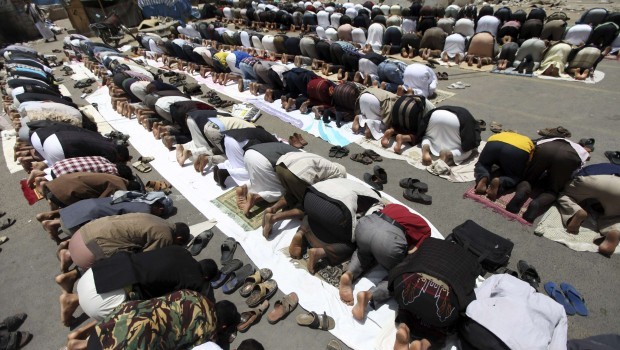The Islamic movements in the Gulf are part of a broader return to Islam that began during the 1980s, after both nationalist and Marxist projects failed—sometimes termed an “awakening” of collective religious awareness.
I do not presently see signals of a new or novel “awakening” in the Gulf: Islamic movements are not invented anew every time it changes or transforms. If we consider social and behavioral shifts of some individuals as an “awakening,” it means that our grandparents were living in a “lack of awakening”—they were absent, or sleeping. That cannot be a fair assessment.
During the 1980s, when people first began to speak of “awakening” in the Gulf, political circumstances provoked jihad in Afghanistan against the “infidel” Red Army. Leaders of the new Islamic movements contributed to the organized pattern of da’wa (propagation of religious belief). The “awakening” was obviously attractive to youth, and it was associated with other aspects of life: Islamic banking, Islamic arts and other practices connected to Islam.
Prominent Islamic scholar, Muhammad Al-Duhaim said: “The ‘awakening’ is not a jurisprudential doctrine, an intellectual trend or a political movement. It is merely an activation of religious belief, and is considered a general Islamic action whose social environment differs in terms of methods and priorities.”
The “awakening” has developed in some parts of the Gulf in the form of charities that establish humanitarian projects in poor countries; it has also been involved with jihadist movements in Chechnya and Afghanistan. The “awakening” cannot be linked to the liberal political movement in some parts of the Gulf: the two movements have conflicting objectives.
As for the Iraqi Awakening of the last decade, it cannot be an example for, or repeated in, other Gulf countries because of social and value considerations that are clearly absent in these countries. The recent violence between members of the Iraqi Awakening and the Iraqi government highlights the failure of Nuri Al-Maliki’s cabinet to coexist with the people of the Iraqi Awakening. Maliki’s government has even excluding them from the army and other institutions, despite their role in fighting Al-Qaeda.
The Gulf has its own historical, economic, cultural and military peculiarities and considerations; it is an exceptional region that has maintained its political and social systems over time.
One characteristic of politics in the region is the patriarchal system, which shapes the relationship between the regime and the citizens. It has been connected with religion and obedience to the rulers for ages: tribal traditions and order have been formed through the relationship between the regime and the tribe. This system means that the social order and the regime benefit from each other.
Oil and gas have been a crucial part of this relationship. The rentier states of the Gulf support their citizens, ensure their prosperity, and secure such social goods as housing, salaries, education and health care.
The states’ provision of the necessities of life to its citizens has ensured that Gulf society has maintained its traditional political and social systems. Admittedly, there are some exceptions in the Gulf. Gulf citizens have watched the experiences of other Arab countries, both rich and poor, and this has made them believe that their regimes are better for them than any other type of rule.
People are inclined to accept the familiar over the unknown. For residents of the Gulf, this means maintaining the existing political and social system—there are reservations about passing judgment, because modernist or reformist ideas require engaging with and revising the status quo.
Military power has become a balancing force in the region: it maintains security, order and welfare. This is, in large part, due to international interests in resources—oil, the international currency, being chief among them. The Gulf states signed contracts with major countries—Britain in the past and the US in the present—to protect this wealth against vandals and deliver it to market.
I personally have never seen or experienced any such “awakening.” What we have been seeing are merely individual—sometimes collective—attempts to submit some idea to the rulers, mostly advice and recommendations. As for those who use violence to make their point, like Al-Qaeda, I personally cannot consider these the actions of someone experiencing an “awakening.” The violence perpetrated by these groups projects ignorance; it is terrorism and intimidation very far removed from any religious sentiment. All they are doing is rejecting the “other” by not respecting the value of life.
The clashes that have been erupting between some intellectuals calling for modernization and reforms—some of whom come from religious movements—also cannot be considered a part of a general “awakening.” Furthermore, tensions between some systems, groups and minorities are not signals of an “awakening”: they are reactions to the violence that took place in some regions.
There is no trace of any “awakening” in the Gulf. If the intended meaning is “Islamization”—returning to life as it was during the era of the Prophet and the Caliphs—does it mean that every generation that has come before us has been practicing our religion incorrectly? That would be an immense wrong to our ancestors. If could also simply mean imposing a “hijab” on the media [making it more modest and “Islamic”], enacting laws on appearance and dress, and rejecting the rights of women and children…. But none of this is in the spirit of the Arab Spring.
The Arab uprisings happened because people wanted to restore dignity to the Arabs; they were seeking the “good life” and wanted to establish rule of law based on protecting freedoms, rights and duties. They want independent judiciaries and social justice. This conception is very far from the current reality in the Gulf.
Even individual demands that take a religious guise have not developed enough that we can fairly say that there is an “Islamic Awakening” in the Gulf that is or is not exploiting the Arab Spring. Supporters of these calls have no specific perspective on the future of politics: they focus on charity, and they call for Muslims unity peacefully while rejecting violence.
